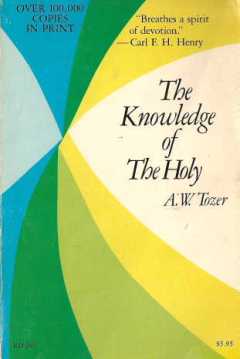“What comes into our minds when we think about God is the most important thing about us. The history of mankind will probably show that no people has ever risen above its religion, and man’s spiritual history will positively demonstrate that no religion has ever been greater than its idea of God. Worship is pure or base as the worshiper entertains high or low thoughts of God.”
—A.W. Tozer, The Knowledge of the Holy (New York: HarperCollins, 1961), p. 1.
Category Archives: Quotes & Excerpts
10 people to never date.
Our high school group, led by the venerable Pastor Chris Nye, is in the midst of a series called DATEABILITY (four weeks exploring the teenage dream).
Check out the message from 8/3/11: “10 People to Never Date,” taught by Pastor Jon Furman.
Here’s his list of ten to not date, both for the ladies and the men:
Don’t Date a Girl Who…
- Always has a boyfriend.
- Flirts with everybody else.
- Uses her body to get attention.
- Talks about herself constantly.
- Tells you how much she hates others.
- Breaks up with someone else to be with you.
- Has few same sex friendships.
- Dates older guys.
- Gets in other people’s drama.
- says she likes you, but…
Don’t Date a Guy who…
- Is a poor sport/sore loser.
- Bought you an expensive gift.
- Is constantly comparing himself to others.
- Is never wrong/not his fault/never apologizes.
- Treats you differently in public than in private.
- Isn’t interested in your family.
- Doesn’t ask you out.
- Doesn’t respect boundaries.
- Must be alone with you.
- Never tells you no.
(Chris Nye followed that up the next week with “How to Ruin a Relationship.”)
Wish I had this kind of advice all around back when I was a teen. Actually, I’m sure my parents were telling me the same thing. Spread the wisdom people!
Looking the part.
We all feel it, sense it and see it. Everything in popular culture – from entertainment to advertisements – pushes us to be something we aren’t. This creates an unspoken tension for followers of Jesus who are called to presence, honesty and authenticity. How can Christians promote depth and character in a society that thrives on hype? Jason Locy and Tim Willard, coauthors of Veneer: Living Deeply in a Surface Society, challenge us to strive for a more meaningful existence.

- Watch their whole talk, “End Veneer” [17 min] at Q Portland 2011
- Read the book, Veneer
Who would stop you now?
“The question isn’t who is going to let me; it’s who is going to stop me.”
—Ayn Rand
We live in a passive society. Certainly many people speak up and act courageously each day. But how many people you know are actively pursuing good things? It seems rare, doesn’t it?
 Perhaps our society is not so much passive as we are non-confrontational. Isn’t that part of the whole allure of gossip? To say slanderous and even scandalous things about others. When confronted the gossiper usually minimizes their guilt, “Well … it’s true!” As if deflecting one’s sin to the ‘truth’ in the rumor will make one justified.
Perhaps our society is not so much passive as we are non-confrontational. Isn’t that part of the whole allure of gossip? To say slanderous and even scandalous things about others. When confronted the gossiper usually minimizes their guilt, “Well … it’s true!” As if deflecting one’s sin to the ‘truth’ in the rumor will make one justified.
I am grateful for the people who have the courage to confront me, and the generosity to see me restored. We should all have people like that, who we give openness and authority to speak into our lives. We cannot afford to be surrounded by yes-men. Sometimes love must be confrontational.
There are at least two close friends in my life who know they have full permission to break my legs if I ever am unfaithful to my wife. We had them stand with us on our wedding day, and their pledge to us was no less serious than Kari and my covenant with one another. (I told these wise guys they would want to take a wooden bat to my kneecaps for good measure. They smiled, and I know they would do it. Sound extreme? That’s far less harmful than the ongoing pain our kids would have to endure if their father was unfaithful. Kneecaps can heal but sin destroys trust and true faith.)
The question isn’t who will let you do what you want to do. Who have you given permission to stop you?
Perpetually thankful.
“Our heavenly Father, finally, is good (Psalm 135:3). His goodness extends throughout our lives. Perhaps the best way to apply the doctrine of God’s goodness is to live a perpetually thankful life (1 Thessalonians 5:18). In so doing we will honor Him who gave His Son for us — the greatest expression of mercy and kindness the world has ever known.
Meditation on these attributes is meant to provide fuel for faith and love of God. Every Christian would do well to consider them in personal devotions and to be involved in a God-centered local church dedicated to a “high view” of God, with preaching that expounds the truths of God’s nature. A vibrant devotional life and involved congregational life cannot trouble-proof one’s Christian walk, but each will greatly assist the believer in looking beyond this world to the realm where our Redeemer dwells.”
—Owen Strachan & Doug Sweeney, “The Beauty of God,” Jonathan Edwards On Beauty (The Essential Edwards Collection), p. 45.
There is a better way to become holy.
“The Most High is holy (1 Samuel 2:2). He is spotless and pure. He has no blemish, and none can find fault with Him. As the Lord is holy, so are we called to be holy (1 Peter 1:13-16). The chief way to become holy is not to start out by following a list of rules, but to examine the Lord’s character, to know His Word, and to follow the example of His Son. The local church will help us greatly in learning what it means to be holy, for there we find people who are living holy lives not to check off legalistic boxes, but to present their entire beings as a thank offering to God. How crucial, then, that we join and become active members in our local churches, where we can learn God’s Word and encourage one another to conform our lives to it.”
—Owen Strachan & Doug Sweeney, “The Beauty of God,” Jonathan Edwards On Beauty (The Essential Edwards Collection), p. 45.
Constant contact.
“The Lord is wise (Proverbs 2). Over all the false wisdom that we trust, and over all the foolish thinking we think is wise, the wisdom of the Lord is right and true. In a world where so many clamor for our allegiance, we must remember that only the Lord is truly wise. Our hearts are calibrated by our sinful natures to stray from Him and His wisdom. We cannot forget this reality, and we need to constantly read Scripture to come into contract with divine wisdom and to keep ourselves from embracing folly.”
—Owen Strachan & Doug Sweeney, “The Beauty of God,” Jonathan Edwards On Beauty (The Essential Edwards Collection), p. 44.
Shaped by awesomeness.
“The Creator is powerful (Psalm 93). He is the only one who truly deserves the title awesome. His strength, like His scope, is limitless. He can do whatever He pleases. Contemplating this trait will enable us to claim strength in areas where we are weak and to find release from self-dependency. Sooner or later, our strength will fail. We will inevitably and repeatedly lose the ability to control our lives and create good for ourselves and our loved ones. How helpful it will be for us to talk about the might of God and to allow our understanding of this strength to shape the way we live our lives in dependence on the Lord.”
—Owen Strachan & Doug Sweeney, “The Beauty of God,” Jonathan Edwards On Beauty (The Essential Edwards Collection), p. 44.
We have seen His character.
“Our God is lovely (Psalm 90:17). His beauty is undimmed. Nothing can or will change this aspect of His nature. Though we are so often tempted by beautiful things on this earth, we believers have been claimed by a being far more beautiful and lovely than anything in creation. We have not of course seen God in person, but we have seen His character, and read of His splendor, and discovered His excellent Son, and those vistas can lift us from giving in to the temptation to lesser things if we simply raise our vision on a regular basis to behold the beauty of the Lord.”
—Owen Strachan & Doug Sweeney, “The Beauty of God,” Jonathan Edwards On Beauty (The Essential Edwards Collection), pp. 43-44.
Healthy people grow.

- healthy people grow
- growing people change
- change challenges us
- challenges drive us to trust Jesus
- Jesus calls us to obedience
- obedience makes us healthy
- healthy people grow!
Growing healthy and whole is a never-ending cycle. We never grow beyond our need to change and grow.
Only Jesus can change us, and we can only grow as we trust in Him, continually.
—adapted from James Ryle, “Healthy Things Grow.”
[HT: Jon Furman in real-time.]
Influence. What are you telling yourself?
 Relationship drives influence. In every sphere of life. How are you influencing yourself?
Relationship drives influence. In every sphere of life. How are you influencing yourself?
Another question: Do you talk to yourself more than you listen to yourself?
“No one is more influential in your life than you are because no one talks to you more than you do. You’re in an unending conversation with yourself. You’re thanking to yourself all the time, interpreting, organizing, and analyzing what’s going on inside you and around you.”
—Paul David Tripp, A Quest for More
“Have you realized that most of your unhappiness in life is due to the fact that you are listening to yourself instead of talking to yourself?”
—D. Martyn Lloyd-Jones, Spiritual Depression
And by “talking to yourself,” we cannot mean just telling yourself positive thoughts or psych yourself up with messages to “stay positive!” That could be part of it, but no amount of positivism can overcome reality. What are you telling yourself that is true?
Finally, brothers, whatever is true, whatever is honorable, whatever is just, whatever is pure, whatever is lovely, whatever is commendable, if there is any excellence, if there is anything worthy of praise, think about these things. What you have learned and received and heard and seen in me—practice these things, and the God of peace will be with you.
—Philippians 4:8-9
What is your passion? What are you willing to sacrifice and die for?
Ever heard of acedia?
No doubt you have experienced acedia, which at least means being passionless.
Passion has historical meant suffering. Our passion is what we are willing to sacrifice for, even die for as a cause. It takes great courage and generosity of soul to be full of true passion. And we tend towards acedia in our proud and greedy sinful nature.
But there is hope!
Tim Keller explains how real passion and acedia are related:
[HT: Chris Nye]

Sloth: not just a slow animal.


